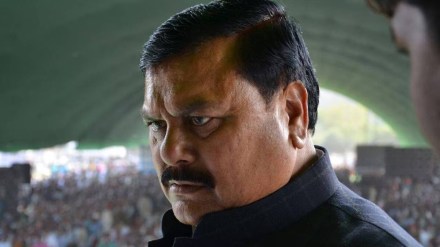Two years after the idea was first mooted by the Congress government led by Rajiv Gandhi, and 12 years before it was passed in the Rajya Sabha, a Bill to provide 33 per cent reservation to women in the Lok Sabha and state assemblies was brought to the Lok Sabha for introduction. Unruly scenes were witnessed as the then government of Atal Bihari Vajpayee tried to introduce the much-awaited 84th Constitution Amendment Bill in the Lower House.
Papers relating to the Bill were snatched from the Speaker’s table and from Law Minister M Thambidurai’s hands, crumpling them up and flinging them in the air. The incident came amid din as MPs belonging to the Samajwadi Party, the Rashtriya Janata Dal and the Bahujan Samaj Party protested the introduction of the Bill.
Also Read: Lok Sabha clears Women’s Reservation Bill, 2023
The Lok Sabha had already been adjourned five times during the day due to the ruckus. It was in the midst of this bedlam that RJD MP Surendra Kumar Yadav rushed to the well of the House, snatched papers pertaining to the Bill from Speaker GMC Balayogi’s table before heading towards the Law Minister and taking away the papers from his hands and throwing them away.
Those seen in the well of the House included RJD chief Laloo Prasad Yadav, SP chief Mulayam Singh Yadav and BSP leaders Mayawati and Akbar Ahmed ‘Dumpy’, Saifuddin Soz (National Conference) E Ahmed (Muslim League), Sultan Salahuddin Owaisi (MIM) and Buta Singh (Independent), among others.
The protesting members were demanding the inclusion of a quota for Other Backward Classes and minorities in the Bill to reserve one-third of the seats of the House for women. It has been a long-standing demand of the SP, BSP and the RJD to include OBCs in the ambit of the women’s quota.
Through the years, five attempts were made by successive governments to clear the bill on women’s reservation, but to no avail. On September 12, 1996, Prime Minister HD Deve Gowda tabled the Constitution (81st Amendment) Bill, which sought to reserve one-third of seats for women in Parliament and state legislatures. However, it was sent to a select committee following opposition by some parties. The Bill was tabled again in both Houses on December 9, 1996, but failed to make any headway.
Also Read: Women’s Reservation: Modi’s masterstroke could alter poll dynamics in 150 Lok Sabha seats
The Bill could not be introduced in the 11th Lok Sabha during the tenure of late Atal Bihar Vajpayee as PM in 1998, and lapsed with the dissolution of the Lok Sabha. The Bill was taken up again by Vajpayee in 1999 and again in 2003, but failed to get it passed.
In 2008, the UPA government introduced The Constitution (108th Amendment) Bill, 2008 in Rajya Sabha to provide one-third reservation to women in Lok Sabha and state assemblies. The Bill was referred to a standing committee which gave its report in December 2009. The Manmohan Singh Cabinet approved the Bill on February 25, 2010. On March 9, the Bill was passed bythe Rajya Sabha.
However, the Bill was never brought to the Lok Sabha and lapsed with the dissolution of the Lower House.
